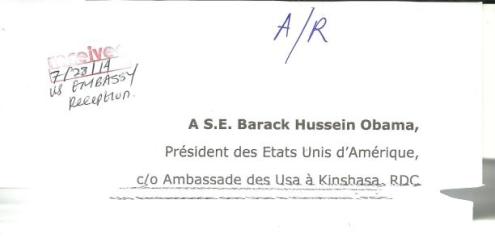3 African leaders cancel trip to U.S. over Ebola outbreak; Obama still plans summit
The U.S. issued a travel warning Thursday for three African countries hit by an outbreak of deadly Ebola, but the White House said President Obama will go forward with a summit in Washington next week featuring African leaders.
The State Department issued the travel warning for Sierra Leone, Liberia and Guinea, the three countries hit hardest by the worst Ebola outbreak in history.
But White House press secretary Josh Earnest said Mr. Obama has no plans "at this point" to alter or cancel the summit schedule, set for Monday through Wednesday. The White House is billing the conference as the largest gathering of African leaders ever in Washington, including some representatives from the nations where the contagion is spreading.
Mr. Earnest said the Centers for Disease Control has determined there is "no significant risk in the United States" from the Ebola outbreak.
The president of Sierra Leone, Ernest Bai Koroma, has canceled his trip to Washington due to the deadly Ebola outbreak in his country. He said in a statement online that he is canceling his planned trip to Washington as he declared a health emergency in his country. The leaders of Guinea and Liberia also reportedly are canceling their plans to attend the summit.
Mr. Koroma is implementing measures aimed at tackling the Ebola virus, including quarantines and a ban on most public meetings.
The Ebola outbreak has killed more than 729 people across West Africa and has infected two U.S. health care workers.
"Fellow citizens, this is a national fight, and it behooves all of us to stand together to promote the truth about this deadly disease," Mr. Koroma said. "Ebola is real, and we must stop its transmission."
Rep. Alan Grayson, Florida Democrat, has asked the Obama administration to restrict travel into the country from anyone who lives or has recently visited the three countries suffering from the breakout.
Mr. Grayson, a member of the House Foreign Affairs Committee, wants the State Department to ban citizens of Guinea, Liberia and Sierra Leone from entering the U.S., including any travelers who have visited those countries in the past 90 days.
Among those officials invited to attend the summit are the leaders of Guinea and Liberia, which also are experiencing the Ebola outbreak.
Mr. Schultz said the White House is continuing to monitor the Ebola crisis closely. He said the Centers for Disease Control has said "this is not a risk to the U.S. at this time."
On Wednesday, the Peace Corps announced it was pulling all 340 volunteers from Sierra Leone, Guinea and Liberia in response to the outbreak of the highly contagious disease, which kills up to 90 percent of those infected.
Liberian President Ellen Johnson Sirleaf has announced that certain borders of the country will be closed until the contagion is under control.
A Liberian health official told CBS News the Ebola outbreak is now beyond the control of its government.
Read more: http://www.washingtontimes.com/news/2014/jul/31/african-leader-cancels-trip-us-over-ebola-outbreak/#ixzz394vyyjHC
Follow us: @washtimes on Twitter
__._,_.___
Posted by: Samuel Desire <sam4des@yahoo.com>
| Reply via web post | • | Reply to sender | • | Reply to group | • | Start a New Topic | • | Messages in this topic (1) |
----------------------------------------------------------
The Voice of the Poor, the Weak and Powerless.
-----------------------------------------------------------
Post message: AfricaRealities@yahoogroups.com
Subscribe: AfricaRealities-subscribe@yahoogroups.com
Unsubscribe: AfricaRealities-unsubscribe@yahoogroups.com
List owner: AfricaRealities-owner@yahoogroups.com
__________________________________________________________________
Please consider the environment before printing this email or any attachments.
---------------------------------------------------------------------------------------------------------------------
The Voice of the Poor, the Weak and Powerless.
-----------------------------------------------------------
Post message: AfricaRealities@yahoogroups.com
Subscribe: AfricaRealities-subscribe@yahoogroups.com
Unsubscribe: AfricaRealities-unsubscribe@yahoogroups.com
List owner: AfricaRealities-owner@yahoogroups.com
__________________________________________________________________
Please consider the environment before printing this email or any attachments.
---------------------------------------------------------------------------------------------------------------------
.
__,_._,___


